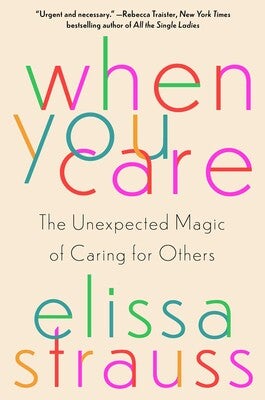As 2024 draws to a close and we reflect on our current economic, social, and political context, the need for an economy that truly works for American families couldn’t be clearer. Lucky for all of us, this past year saw the publication of a number of smart, solutions-focused, myth-busting books that have been critical to shaping my own thinking about what comes next for America’s economy.
Here are twelve books from the last twelve months that might help us all move closer to a just economy:
1. The Guarantee: Inside the Fight for America’s Next Economy by Natalie Foster.
 I am proud to kick off the list with my brilliant colleague and Aspen Institute Fellow Natalie Foster. Natalie dives deep into the movements that aim to reshape the American economic landscape and pens a compelling framework for how we are already building the economy we deserve. This spring, Natalie and I talked through the guarantee economy framework during a book talk at the Aspen Institute.
I am proud to kick off the list with my brilliant colleague and Aspen Institute Fellow Natalie Foster. Natalie dives deep into the movements that aim to reshape the American economic landscape and pens a compelling framework for how we are already building the economy we deserve. This spring, Natalie and I talked through the guarantee economy framework during a book talk at the Aspen Institute.
2. The Myth of Making It by Samhita Mukhopadhyay.
 A beautiful balance of systemic analysis and personal storytelling from former Teen Vogue Editor Samhita Mukhopadhyay, “The Myth of Making” gets at everything that’s wrong with hustle culture and points toward how we might remake the American workplace.
A beautiful balance of systemic analysis and personal storytelling from former Teen Vogue Editor Samhita Mukhopadhyay, “The Myth of Making” gets at everything that’s wrong with hustle culture and points toward how we might remake the American workplace.
3. The Alternative: How to Build a Just Economy by Nick Romeo.

Journalist Nick Romeo crafts a compelling narrative that draws from his New Yorker reporting to explore innovative economic models that prioritize equity, sustainability, and social justice. I had the pleasure of chatting with Nick about practical frameworks and real life alternatives to traditional capitalism that he chronicles in the book.
4. When You Care: The Unexpected Magic of Caring For Others by Elissa Strauss.

Artfully crafted, “When You Care” complicates the tired narratives of America’s caregiving crisis and writes the script by asking us to care about care and de-center independence.
5. Road to Freedom: Economics and the Good Society by Joseph Stiglitz.

There’s a reason Joseph Stiglitz won a Nobel prize, and his “Road to Freedom” offers up some deep and compelling thinking about how our obsession with freedom got twisted up into the wreckage of free and unfettered markets and how we can and must make our way to a more just economy.

6. Belonging without Othering by john a. powell.
“Belonging without Othering” is not an economic book on its face, but powell gets at the cultural qualities and beliefs that shape our out-of-whack economic system. He pens a robust treatise on how we can create cultures of belonging that aren’t dependent on there being an outsider and offers many inroads to a different kind of economy.

7. How the World Ran Out of Everything by Peter Goodman.
A close up and at times even comical look at the wild and wily global supply chains that are nearly destroying us and our planet.

8. The Quiet Coup by Mehrsa Baradaran.
Mehrsa Baradaran’s “The Quiet Coup” offers an unflinching look at neoliberalism that helps us all better understand the recent past and find a way toward a more just economic future.

9. Savings and Trust: The Rise and Betrayal of the Freedman’s Bank by Justene Hill Edwards.
Edwards gets at the roots of racial inequality in this country through the story of the Freedman’s Bank, where tens of thousands of former slaves banked millions of their hard-earned dollars before the bank collapsed.

10. Over Work: Transforming the Daily Grind in the Quest for a Better Life by Brigid Schulte.
From reduced life expectancies and poor mental health to inefficient workplaces, lost sales and more, “Over Work” demonstrates the costs of how work is structured not only in the US, but around the globe. Complete with practical personal strategies, policy solutions, and business examples, Schulte urges readers to challenge accepted work norms and find a better way. And tune in! I’ll be hosting Brigid Schulte in January to talk about the book and take your questions.

11. Disillusioned: Five Families and the Unraveling of America’s Suburbs by Ben Herold.
Chronicling the lives of five American families, Herold’s “Disillusioned” tells the story of the unravelling of a particular version of the American dream and helps us think creatively about what might replace it.

12. White Poverty: How Exposing Myths about Race and Class Can Reconstruct American Democracy by Reverend Dr. William J. Barber II.
With inspirational stories from US social movements of the past to the Moral Mondays protest of today, Rev. Barber demonstrates the power of diverse coalitions to achieve transformative change, with essential lessons for overcoming today’s social divides.
Learn More
The Economic Opportunities Program advances strategies, policies, and ideas to help low- and moderate-income people thrive in a changing economy. Follow us on social media and join our mailing list to stay up-to-date on publications, blog posts, events, and other announcements.

